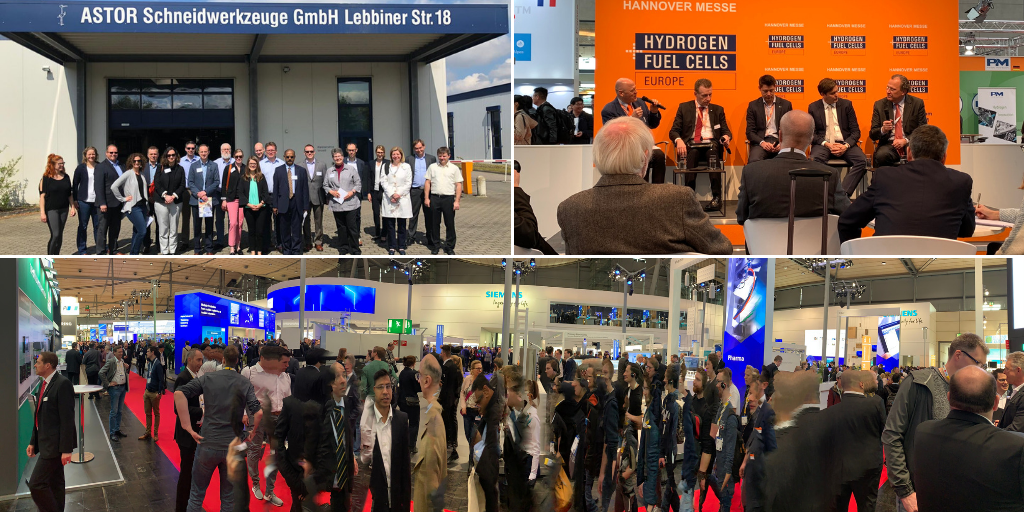- Log in to post comments
April 1-5, 2019 – Hannover Messe and German BR&E
May 13-17, 2019 – GACC Transatlantic Cluster Initiative in North Rhine-Westphalia, Lower Saxony, Berlin, and Brandenburg
Why are you there?
Hannover Messe is an opportunity for FDI business development, gain insight on industry trends, and meet with Dayton Region German-owned companies.
German American Chamber of Commerce (GACC) Transatlantic Cluster Initiative is an opportunity for knowledge exchange, potential partnerships, and network building between German and Dayton Region cluster representatives with the program’s focus on Food Processing & Resource Efficiency.
Who did you meet?
Going off-site of the Hannover Messe show, I met with leadership from the following German-owned companies that have a presence in the Dayton Region:
- Ernst Metal Technologies
- Heraeus Epurio
- PVS Plastics
- Superior Abrasives (parent company PFERD)
These visits included tours of the company’s German facilities, discussion of workforce, apprenticeship programs, resources available, and expressing support for their Dayton Region operations. A Wright Brothers themed coffee tumbler and hand-written thank you letter was provided to each company representative.
The GACC event included a great team from Ohio:
|
Justin Farmer |
Dayton Development Coalition |
|
Horton Hobbs |
Chamber of Greater Springfield |
|
Melanie Flax-Wilt |
Clark County Commissioner |
|
Josh Jennings |
Global Impact STEM Academy |
|
Rebecca Singer |
CIFT |
|
Chris Henny |
Ohio Agribusiness Association |
Our team met with representatives from the German Institute of Food Technologies (DIL), Food Processing Institute (FPI), technology network OWL (OstWestfalenLippe), CITEC (Cognitive Interactive Technology), and Federation of German Food and Beverage Industry (BVE). These visits were very informative to learn more about Germany’s food and agriculture industry and the technology associated.
Top 5 things you learned:
- Germany’s current dependence on fossil fuel vehicles, as they currently have 46 million internal combustion engine vehicles in service. Due to the Paris Agreement and other regulations, Germany needs to reduce carbon emissions by 55% by 2030. They are currently projecting 10 million hydrogen vehicles in service by 2030, leaving a gap of over 30 million vehicles that will rely heavily on synthetic forms of fuel. Hydrogen production is much needed, preferably using electrolysis, or using an electric current to split water into hydrogen and oxygen. When using renewable electricity this process has numerous emissions benefits. In late 2018, Germany’s Economy Minister announced a 1 Billion Euro fund for battery cell development but many major German automakers already have agreements with Chinese, Korean, and Japanese battery vendors.
- Implementation of 5G Non-Public Networks for industrial users. With the increasing trend of IIoT, companies need to consider if it is acceptable for data to leave their premises, can they trust outside network operators to know the number and location of devices. Other considerations include; financial resources and manpower to build and operate a non-public 5G network, is it better to use a service – if that can be trusted.
- The Germany/European Cluster program came out of the Marshall Plan.
- The German State of Lower Saxony is the #1 Food producing state in Germany, produces 1/3 of the entire country’s eggs. This state is also home to BMW.
- Introduction of new foods has to be based on consumer demand, companies cannot afford to develop nutrient-rich foods (higher cost to consumers) versus calorie-rich foods (lower cost to consumers) if consumers are unwilling/unable to pay for those foods.
